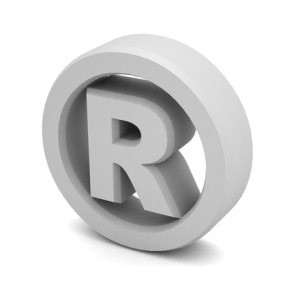May 14, 2018

In 2016, rapper/producer, Andre Young, known professionally as “Dr. Dre,” filed oppositions to trademark applications filed by OB-GYN, Dr. Draion Burch, for protection of medical goods and services provided under the name, “Dr. Drai.” After two years, the United States Patent and Trademark Office’s Trademark Trial and Appeal Board (“TTAB”) found in favor of Dr. Draion Burch, deciding that even though Dr. Dre is famous and the Dr. Drai marks are similar to his, the consuming public would not connect the medical goods and services of Dr. Drai, with the reputation of Dr. Dre, the entertainer. We would like to point out the bit of irony in the singer of “Express Yourself” attempting to use trademark law to limit the self-expression of a third party.
How can owners of famous marks attempt to protect their respective trademark law rights?
False Suggestion of a Connection to a Famous Mark
Trademark law provides famous marks a greater degree of legal protection because they are more likely to be remembered and associated with goods/services by consumers. It is this philosophy that has allowed McDonald’s, for example, to prevent a group of dentists from using the name “McDental;” UMG Recordings, Inc., owner of the Motown mark, to prevent Mattel from using “Motown” to market toy cars; and Brian J. Publishing, Inc., owner of Adventures of Snooky, to prevent “Snooki” from the Jersey Shore from obtaining a trademark in her stage name.
In the proceedings at issue, although the TTAB found that Dr. Dre was a famous public figure, it held that his reputation as a musician and producer would not connect in the collective minds of the consuming public with Dr. Drai’s educational and motivational speaking services or his medical and health care products and services. This conclusion was arrived at, in part, because, as Dr. Drai points out, “Dr. Dre is not a medical doctor nor is he qualified to provide any type of medical services or sell products specifically in the medical or healthcare industry.”
Trademark Law Prevents Others from Diluting a Mark
Trademark dilution claims are often brought by famous trademark owners on the grounds that use of a similar mark would, by blurring or tarnishment, diminish the goodwill associated with the senior mark. Dilution by blurring refers to third parties using a mark similar to the famous mark, in connection with dissimilar products. In such situations, use of the junior mark may result in making the famous mark less unique and may lower its commercial value. Dilution by tarnishment, on the other hand, occurs when the junior user’s mark would negatively impact the reputation of the famous mark in an unwholesome or distasteful context.
On the facts at issue, it is unlikely that, Dr. Drai’s use of his mark would tarnish Dr. Dre’s mark. To the contrary, in his TTAB papers Dr. Drai argued that Dr. Dre’s history of misogynistic and homophobic lyrics could be viewed as a “bad reflection on [him] as a doctor.” Additionally, use of the Dr. Drai mark should not blur Dr. Dre’s brand because the doctor’s medical goods and services are unlikely to diminish the commercial value of the Dr. Dre mark in connection with his profession as an entertainer. In fact, it would seem that Dr. Dre did not find dilution to be a very convincing argument either; he ended up waiving the dilution claim when he submitted his final papers to the TTAB.
Seek out the Expertise of a Trademark Attorney
Trademark law is a subjective area of practice that requires creative solutions on a wide range of matters. While the above TTAB proceeding may provide some answers as to the limits of Dr. Dre’s famous mark insofar as medical goods and services are concerned, it is interesting to ponder what the result would have been if the facts at issue had been different. Specifically, what if Dr. Dre had not found the USC Iovine and Young Academy for arts, technology and the business of innovation in 2014, but instead had founded a medical school? Would this have been deemed a similar channel of trade/business to that of Dr. Drai in the eyes of the TTAB? In our estimation, the TTAB would have found that it was.
If you are interested in learning more about this topic, or if you are involved in a trademark dispute, please e-mail us at info@kleinmoynihan.com, or call us at (212) 246-0900.
The material contained herein is provided for informational purposes only and is not legal advice, nor is it a substitute for obtaining legal advice from an attorney. Each situation is unique, and you should not act or rely on any information contained herein without seeking the advice of an experienced attorney.
Attorney Advertising
Related Blog Posts:
PornHub Advertising in Crosshairs for Sloppy Trademark Clearance



